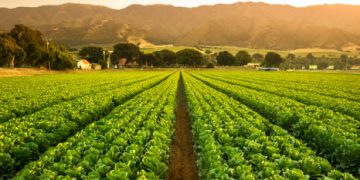Farmers across the globe, from the United States to France and India, are increasingly voicing their concerns over free trade agreements which they believe adversely affect their earnings and livelihoods. This rising discontent is rooted in a decades-long history of agricultural protests, dating back to the 1960s when dairy farmers in Wisconsin would dump milk to protest against pricing policies that threatened their economic survival.
Today, these protests have evolved into a global movement with farmers demanding fair compensation and supportive policies from their governments. The crux of their concerns lies in the impact of international trade policies orchestrated by organizations like the World Trade Organization (WTO). Historically, the WTO has promoted free trade policies that minimize market distortions, which often involves reducing government support for farmers and setting global price standards.
One notable instance occurred in the late 1990s when Mexico imposed tariffs on imported U.S. high-fructose corn syrup to protect its domestic sugar industry. The WTO ruled against these tariffs, citing them as market-distorting, forcing Mexico to retract them. This case exemplifies the broader impact of WTO policies on national agricultural markets.
Changes in global trade policies, particularly under the administration of former U.S. President Donald Trump, who employed tariffs as a strategy to prioritize American interests, have shown that the dynamics of international trade are shifting. President Joe Biden has continued some of these practices, highlighting a persistent reevaluation of how trade policies affect domestic industries.
Amidst these changes, farmers are advocating for policies that would bolster their income security. For instance, the National Family Farm Coalition is pushing for the reintroduction of Country of Origin Labeling, a measure that was eliminated by the WTO in 2015, to allow consumers to preferentially choose locally produced food. Additionally, the proposed Milk from Family Dairies Act calls for more significant investment in local dairy infrastructure, enhanced regulatory oversight of dairy processors, and the establishment of a minimum price for dairy products.
As farmers worldwide leave their fields to protest in the streets, they seek not only to secure their own financial futures but also to promote the sustainability of local economies. Their actions challenge lawmakers to reconsider agricultural policies that, until recently, seemed unchangeable. The collective farmer movements highlight a critical moment in global agriculture, pushing for reforms that align more closely with the needs of food producers rather than the broader mandates of international trade organizations.
Explore the newest supply chain news at The Supply Chain Report. Visit ADAMftd.com for free international trade tools.
#AgricultureNews #TradeAgreementNews #FarmerProtests #GlobalTradeNews #SupplyChain















